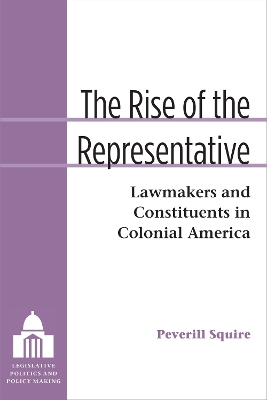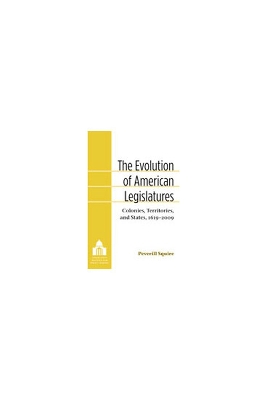Legislative Politics and Policy Making
3 total works
Representation is integral to the study of legislatures, yet virtually no attention has been given to how representative assemblies developed and what that process might tell us about how the relationship between the representative and the represented evolved. The Rise of the Representative corrects that omission by tracing the development of representative assemblies in colonial America and revealing they were a practical response to governing problems, rather than an imported model or an attempt to translate abstract philosophy into a concrete reality. Peverill Squire shows there were initially competing notions of representation, but over time the pull of the political system moved lawmakers toward behaving as delegates, even in places where they were originally intended to operate as trustees. By looking at the rules governing who could vote and who could serve, how representatives were apportioned within each colony, how candidates and voters behaved in elections, how expectations regarding their relationship evolved, and how lawmakers actually behaved, Squire demonstrates that the American political system that emerged following independence was strongly rooted in colonial-era developments.
Evolution of American Legislatures, The: Colonies, Territories, and States, 1619-2009
by Peverill Squire
Published 1 January 2012
The institutional development of American legislatures, beginning with the first colonial assembly of 1619, has been marked by continuity as well as change. Peverill Squire draws upon a wealth of primary sources to document this institutional history. Beginning with the ways in which colonial assemblies followed the precedents of British institutions, Squire traces the fundamental ways they evolved to become distinct. He next charts the formation of the first state legislatures and the Constitutional Congress, describes the creation of territorial and new state legislatures, and examines the institutionalization of state legislatures in the nineteenth century and their professionalization since 1900. With his conclusion, Squire discusses the historical trajectory of American legislatures and suggests how they might further develop over the coming decades. While Squire's approach will appeal to historians, his focus on the evolution of rules, procedures, and standing committee systems, as well as member salaries, legislative sessions, staff, and facilities, will be valuable to political scientists and legislative scholars.


